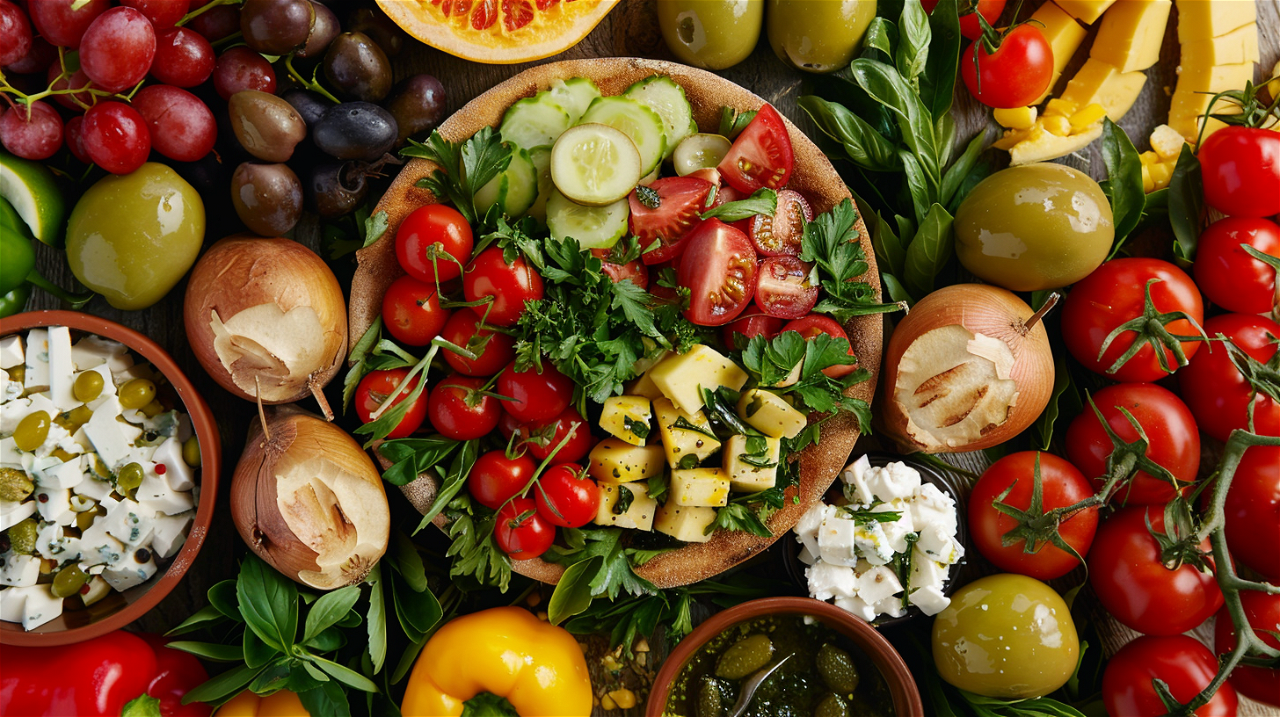
The Mediterranean diet focuses mainly on whole foods like fruits, vegetables, whole grains, nuts, seeds, legumes, and olive oil while encouraging moderate consumption of fish, poultry, and dairy, and limited intake of red meat and sweets. This diet gained international recognition in the 1960s when researchers observed lower rates of heart disease in Mediterranean populations compared to other parts of the world. Its popularity surged following studies linking it to numerous health benefits, including improved heart health and increased longevity.
Indians Incorporating the Mediterranean Diet
Integrating the Mediterranean diet into Indian cuisine can be both delicious and nutritious. Here are some tips:
Use Olive Oil: Replace traditional cooking oils with extra virgin olive oil for a healthier fat option.
Eat More Vegetables: Include a variety of vegetables in your meals. Traditional Indian dishes like sabzi and dal can be made with more vegetables.
Whole Grains: Choose whole grains such as brown rice, quinoa, and whole wheat over refined grains.
Add Nuts and Seeds: Incorporate almonds, walnuts, flaxseeds, and chia seeds into your diet for added nutrition.
Include More Fish: While fish is not a staple in all Indian regions, incorporating it into your diet can provide essential omega-3 fatty acids.
Limit Red Meat and Sweets: You must choose plant-based proteins and reduce the intake of red meat and sugary treats.
Mediterranean Diet Reducing Mortality
The Mediterranean diet's impact on reducing mortality is multi-faceted. Here’s how:
Cardiovascular Health
The diet is rich in heart-healthy fats, such as those found in olive oil and fish. These fats help lower bad cholesterol levels and increase the good cholesterol. The high intake of fruits, vegetables, and whole grains also contributes to better heart health.
Cancer Prevention
Antioxidants and anti-inflammatory compounds found in fruits, vegetables, and olive oil play a crucial role in reducing cancer risk. These nutrients help protect cells from damage and reduce inflammation, which is linked to cancer development.
Overall Longevity
The diet's emphasis on whole, unprocessed foods helps maintain a healthy weight and prevents chronic diseases such as type 2 diabetes, hypertension, and metabolic syndrome. This overall health improvement contributes to a lower risk of death from various causes.
Foods Included in the Mediterranean Diet
Fruits and Vegetables: Tomatoes, cucumbers, leafy greens, berries, apples, and citrus fruits.
Whole Grains: Brown rice, quinoa, whole wheat bread, and pasta.
Healthy Fats: Extra virgin olive oil, avocados, and olives.
Nuts and Seeds: Almonds, walnuts, flaxseeds, and chia seeds.
Legumes: Beans, lentils, chickpeas, and peas.
Fish and Seafood: Salmon, sardines, mackerel, and shellfish.
Dairy: Greek yogurt and cheese in moderation.
Herbs and Spices: Basil, oregano, garlic, and rosemary.
Foods Avoided in the Mediterranean Diet:
Certain foods are minimized or avoided in the Mediterranean diet to promote better health:
Red and Processed Meats: Limited consumption of beef, pork, and processed meats like sausages.
Refined Grains: White bread, white pasta, and pastries.
Sugary Beverages and Sweets: Soda, candy, and desserts are high in sugar.
Highly Processed Foods: Fast food, ready-made meals, and snack foods with artificial ingredients.
Finally, before switching to a new dietary or fitness regime, don’t forget to consult a healthcare practitioner.
















